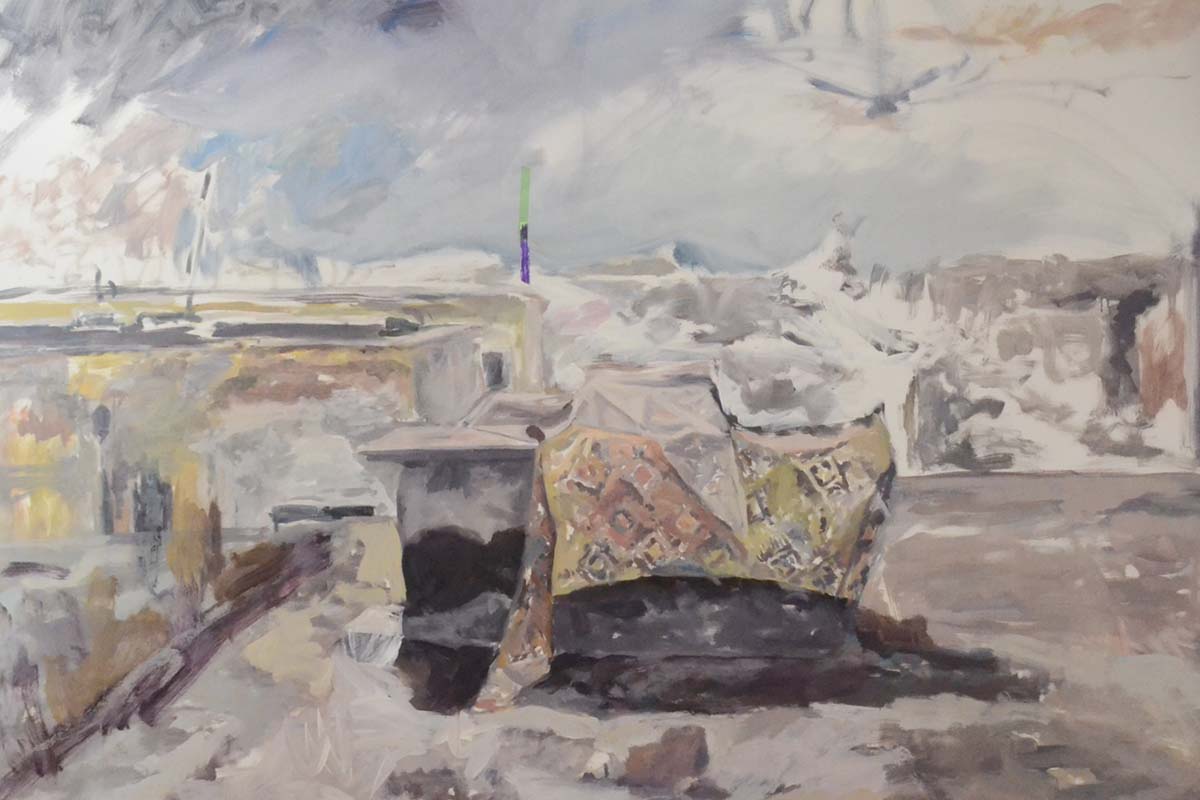Sidi Kanani
The melancholy of the present
Art factory, Venice (I)
May — June 2023

The melancholy of the present
Daniele Capra
Sidi Kanani’s painting is characterized by a melancholic figuration and the use of opaque colours, applied to the surface in a free and pasty manner, without any preparatory drawing. His investigation focuses on public spaces and abandoned industrial areas, which are rendered in an essential and poignant manner. The exhibition The melancholy of the present presents a dozen canvas works by the Albanian artist, which depict the suburbs, abandoned buildings and facilities, populated by solitary and silent human figures. Desolate and metaphysical spaces in which the emptiness of the present is measured against the ruins of the social and economic history of the Twentieth century.
The exhibition recounts the visual investigations that Kanani has carried out in the last decade, moving between public buildings and workplaces fallen into ruin in the surroundings of Scutari. Desolate areas where productive activities have given way to ruins, and where the desire for growth and well-being has surrounded to desolation and neglect. With emotionally dense and melancholic painting, dominated by pale and opaque colours, the artist evokes the ghosts of this recent past, finding in the rare human presence the hidden shreds of life.
In Kanani’s paintings, the suburbs – characterized not only by workplaces but also by squares, areas with road infrastructures, and abandoned or undetermined urban fragments – are the point of contact where the dissent between humans and environment is most visible. In these places the power has shown its strength in the past by erecting monuments, industrial spaces, determining methods of production, and economic objectives to pursue, only to be suddenly challenged by rapid changes. In the works of the Albanian artist, those often overlooked areas make the conflict between collective socioeconomic demands and the individual manifest, as the latter is contested between the ungovernable reasons of history and their own inescapable personal needs.
The melancholy of the present thus provides an intense and poignant reading of the transience of power and human constructs, in some of the places where it has manifested its strength to the fullest, only to disastrously decay into dust. The future and utopias may have been archived, while humans – although defeated and unable to directly generate necessary change – seem to preserve almost only their natural instinct for life.